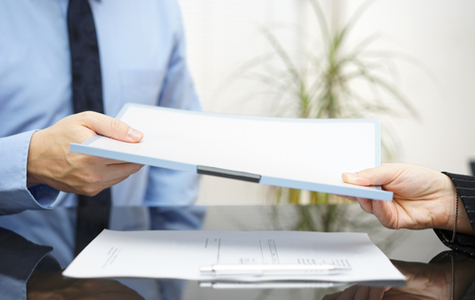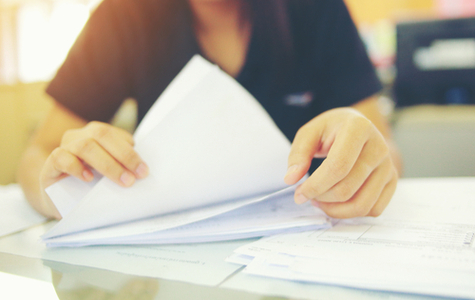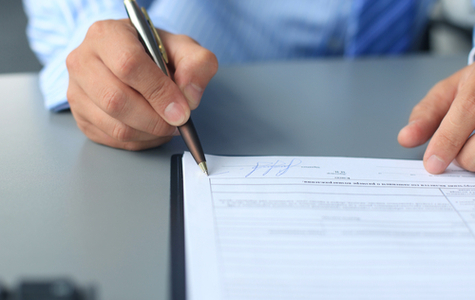
The world of mortgages can be an unknown quantity, especially if you’ve never had one before. But, applying for one doesn’t need to be difficult, if you prepare first. There will be a list of questions that you’ll have to answer in your mortgage interview and on your application form, but you shouldn’t be daunted.
Mortgage providers are legally required to lend responsibly and mortgage advisors have to offer impartial advice, so they are looking to see if you’ll be able to comfortably make your mortgage repayments, even if interest rates rise. From your deposit to your credit history and future plans, here we outline the key questions you will be asked when applying for a mortgage.
What to expect from your mortgage interview
Your interview will take place with either your mortgage advisor or the mortgage provider you want to apply to. It can be done over the phone or face-to-face and typically lasts 1 – 3 hours.
A mortgage interview isn’t like a job interview, it’s about offering you information and advice, so you can make an informed decision, as well as finding out whether the mortgage you want to apply for is suitable for you. They’ll want to get to know you and you shouldn’t feel put off by any probing questions they ask.

What questions can be asked?
Your deposit
You may be asked how you’re going to pay your deposit. If you’ll be using money from a Help to Buy ISA, or another form of savings account, you may wish to bring a statement to your meeting, but not all mortgage providers require proof. If your parents are going to be giving you some or all of your deposit as a gift, your mortgage provider may want this in writing (to confirm that your parents aren’t expecting you to pay the money back). Under no circumstances are you allowed to pay for your deposit using a credit card or loan. If you attempt to do so, your mortgage provider can pull out and you’ll be left with no mortgage.Your budget
So that the mortgage provider can lend responsibly, they will want to find out how you spend your money each month. They will do this by looking at the documents you provide (paying close attention to your payslips and bank statements) and by asking how much you spend on the following:- Essential expenses – what you spend on food, your monthly bills (e.g. utilities, council tax, buildings insurance, mobile, internet), vehicle and travel costs (getting to work, taking kids to school).

- Basic quality of living costs – what you spend on childcare, tobacco & alcohol, clothes, household items, toiletries, gym memberships, contact lenses/glasses, personal grooming (hairdressers, make-up), non-essential travel, entertainment, socialising, TV licence, holidays, birthday and Christmas presents.
- Commitments and repayments – what you spend on your debt payments (credit cards, car loans, personal loans and any other debts) and child maintenance payments.

Your credit history
They’ll ask you about your credit history and you need to be open to sharing if you’ve had any problems with debt or missed any of your payments in the past. Tell them if you’ve ever been bankrupt, had a CCJ or IVA, and if you’ve been refused a mortgage or other form of credit before. They’ll find out in the long run anyway, as they’ll apply to one or more of credit reference agencies for your credit history. Before you begin the mortgage application process, it can be worth checking what the credit reference agencies hold on you and rectifying any mistakes. To find out how to do this, read our article how to improve your chances of getting a mortgage.
Your future plans
You may be asked whether you’re planning on having children/more children, when you’re going to retire, if you’re planning on retraining or changing jobs and other personal questions. You shouldn’t be alarmed at this, the mortgage provider/advisor is trying to predict whether your income is going to drop in the future (and how much by), so they can work out whether you’ll still be able to comfortably afford your mortgage. This is called stress testing. They can’t give you a mortgage if you’re going to be left struggling if interest rates rise or have a change in your circumstances. If you’re looking to extend your mortgage beyond your retirement date, you’ll need to provide proof of your retirement income to support your mortgage repayments
What to take with you
Your mortgage broker/provider will need copies of a number of documents to attach to your application, so it makes sense to take these with you if you have a face-to-face meeting. Have them ready to send, or scan and upload if you’re dealing with a broker over the phone.
Having the following documents to hand will avoid the process being drawn out unnecessarily:
- Valid photo ID (photocard driving license or passport)
- Proof of current address (needs to be dated within the last three months: council tax bill, bank statement, credit card bill, utility bill - you should also have details address details of any other properties you have lived in during the previous 3 years)
- Your last 3 – 6 months’ payslips
To learn more about what documents are needed for purchasing a house, read our essential house purchase documents guide.

- Your last 3 months’ bank statements (printouts are usually fine, but best to check with the mortgage provider you’re applying to)
- Proof of any commission or bonuses
- If you’re self-employed, you’ll need to show three years’ worth of business accounts or your SA302 self-assessment tax returns
- Proof of how you will pay your deposit

This guide to saving for a mortgage was produced in collaboration with L&C, the UK’s leading fee-free mortgage experts.




